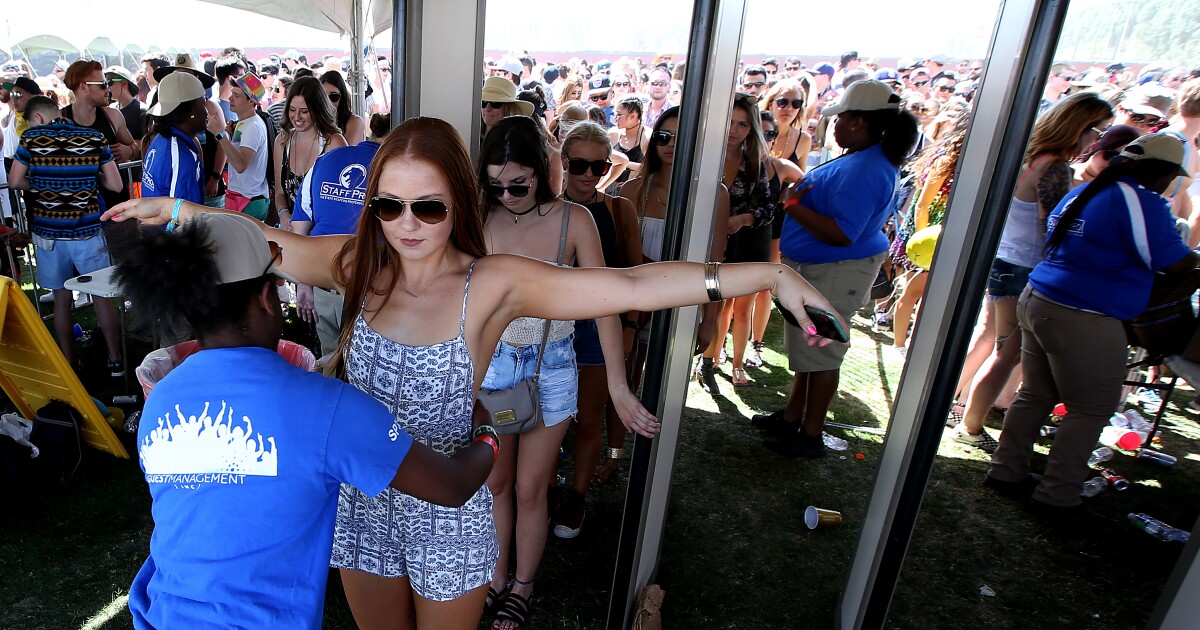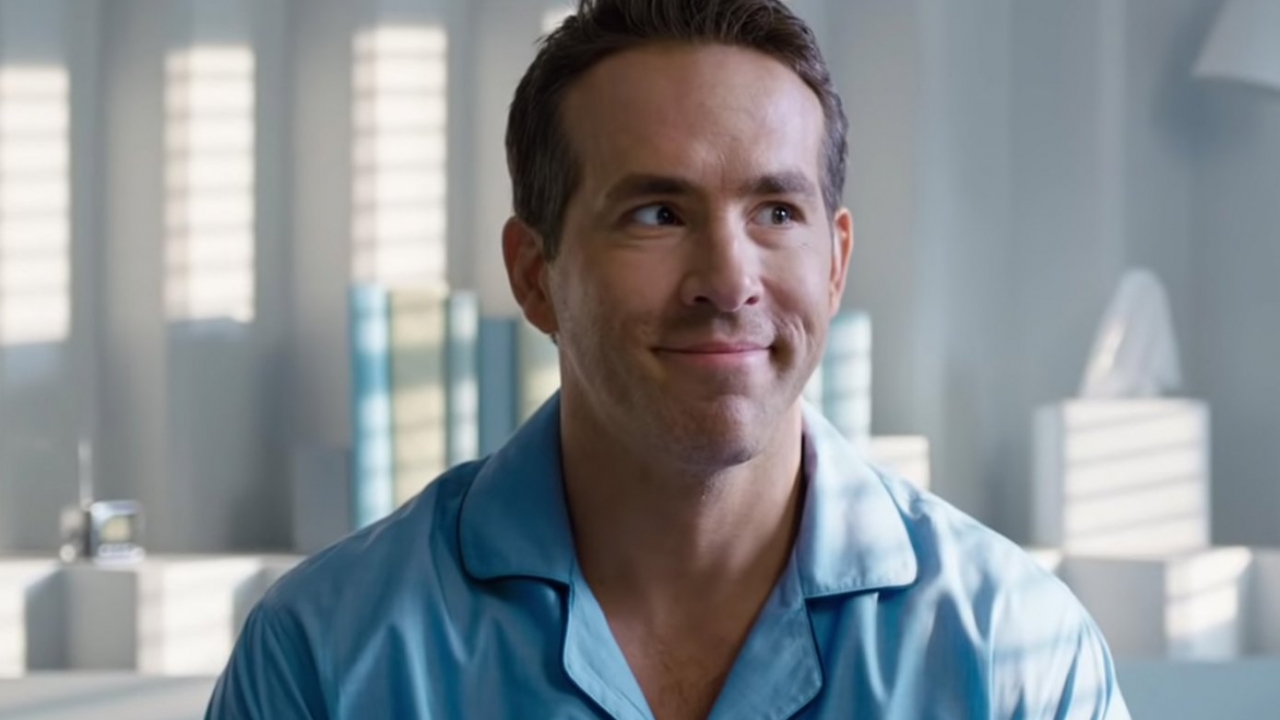Two months ago, concert promoter AEG Presents announced a mandatory COVID-19 vaccination policy for all its shows, including the Coachella Valley Music and Arts Festival in Goldenvoice. Many live music fans applauded the decision.
“I appreciate that you say you want the safest environment possible for your attendees,” said Jason Feffer, a 35-year-old Los Angeles resident who has attended the festival every year since 2012. He co-moderates the popular Coachella forum and praised the policy of AEG vaccination that sets the schedule for the concerts.
But on Tuesday, when Goldenvoice suddenly backtracked from Coachella’s vaccination policy and announced on Instagram that testing a negative test in the first 72 hours could also be used to assist, those same fans weren’t quite sure what to do. The event, scheduled for the weekends of April 15-17 and 22-24, was long overdue, so low ticket sales were not a determining factor. The show is still six months away, enough time for the COVID-19 epidemic to get worse again.
Feffer, for his part, was confused, even disappointed.
“After taking such a strong stance, it’s a bit strange that they are making this change,” he said. Although “the festival will remain reasonably safe, I feel betrayed to see my favorite festival take a complete turn.”
If one thing is certain about COVID-19, especially the Delta variant, it is that the situation can change rapidly. Another winter wave of cases is possible.
Did Goldenvoice consider outdoor music festivals safe? Is it an attempt to shore up a still battered concert industry? When is the right time to lower the safety standards for a global event that takes place in the spring?
“This was always an open policy, and we analyzed the data, plus we felt good relaxing it for outdoor festivals,” an AEG spokesperson told The Times. “Our policy was that we would act on the data. We came to the possibility of easing the restrictions sooner than we thought ”.
Dr. Annette Regan, a professor of epidemiology at UCLA, said vaccination remains the gold standard for ensuring safety.
“Vaccination is the best way to prevent the spread of COVID-19. If at a concert there is a group of non-inoculated people in a nearby space -even outdoors-, this can lead to outbreaks ”, he commented. “Although we have been lucky with other concerts, we can look to the Verknipt music festival in the Netherlands this past summer as an example where similar policies did not work. They demanded a vaccination test or a negative COVID-19 test prior to entry, and yet the concert resulted in more than 1,000 new COVID-19 cases.
“A negative test 72 hours before the event does not indicate that the person is COVID-free,” he added. “They may be in too early a stage of the disease to detect it and still could be infected and be able to infect during the concert.”
Overall, the COVID-19 numbers have seen big improvements in California. Two-thirds of Californians are at least partially immunized, and cases are down 29.5% from two weeks ago. Hospitalizations have decreased by 24.5% in the same period. Under the current policy for outdoor “mega-events” for more than 10,000 people, California recommends a recent vaccination test or negative test, and requires masks for non-inoculated people when indoors.
Large outdoor festivals, such as the three-day July Lollapalooza in Chicago, which had a negative test or vaccination policy, had low transmission rates, with just 203 festival-related cases out of 400,000 attendees. . While the Verknipt festival produced many positive results after following similar guidelines in July, other outdoor festivals, such as the Goldenvoice Firefly in Delaware, were not significant vectors of COVID-19. Goldenvoice’s Day N ‘Vegas, a November hip-hop festival spearheaded by Kendrick Lamar, has also adopted the rule of getting vaccinated or testing negative.
Travis Scott will be one of the headliners of the Coachella 2022 festival.
(Robert Gauthier/Los Angeles Times)
–
–
On August 12, Jay Marciano, president and CEO of AEG Presents, announced the company’s vaccination policy to applause from the music industry.
“We have come to the conclusion that, as market leaders, it was incumbent on us to take a real stance on the status of vaccination,” he said. “I am confident and hopeful that, at the end of the day, we will be on the right side of history and do what is best for the artists, fans and live event workers.”
Tuesday’s policy change surprised many of Coachella’s passionate fans, who have been waiting two years for performances by Rage Against the Machine and Travis Scott. Some fans – those with underlying medical conditions, for example, or simply those with great caution – might now have doubts about attending the festival, where the possibility of unvaccinated attendees is very likely.
“There is a careful balance between respecting individual rights and protecting public health,” said Dr. Regan. “So I imagine the organizers had a difficult time with this decision. In the end, attending a big music festival is a personal choice, not a right, and in my opinion, I think it is reasonable to demand vaccination. Above all, because we know that inoculation will offer the best protection ”.
AEG’s vaccine-only policy continues to apply to its other concerts nationwide, except where prohibited by local laws. Live Nation, the nation’s largest concert promoter, also requires vaccinations or recent negative tests for all of its shows, except where prevented by state governments.
A spokesperson for the Riverside County public health department, where the Empire Polo Grounds of Indio is located, where Coachella is held, stated in a statement to The Times that the county “has followed the state’s health guidelines and recommendations throughout throughout this pandemic; and large-scale events like Coachella and Stagecoach are allowed under existing rules. “
Andrew Austin, a 38-year-old from Los Angeles who has attended Coachella since 2007 (and who works on the Coachella Reddit board with Feffer), said he went to Chicago’s Lollapalooza and that the media “blew away those telephoto photos of the big crowds. But they had a fairly robust detection zone and only 200 or more people tested positive for the festival. “
“If Coachella had said ‘it’s going to be a free battle,’ we would be the first to return fire,” he said. “But with festivals like Lollapalooza hitting this summer, I think it gave people more confidence.”
Anna Bershteyn, a professor of population health at New York University School of Medicine, said she was concerned that Coachella would backtrack on its inoculation mandate. “Withdrawing the vaccine requirement will increase the risk of COVID-19,” he said. “I think if entertainment venues came together on vaccination requirements at this time, it would send a stronger message about the benefits of immunization. For every unvaccinated person who would be excluded for a mandate, I wonder how many inoculated people would attend just for the mandate ”.
Although tickets for Coachella are sold out for both weekends, they can still be purchased for the Stagecoach country music festival, which will feature Thomas Rhett, Carrie Underwood and Luke Combs.
Even beyond public health reasons, the sense that a beloved cultural institution like Coachella can accommodate those who resist vaccination is disappointing for some.
“Many festivals and events have gone perfectly with the negative test and vaccine policy,” acknowledges Feffer. He expects Coachella 2022 to go ahead in a similar fashion. But even so, “I feel like I’ve been slapped in the face.”
To read this note in English click here.
–


